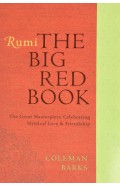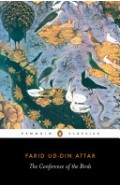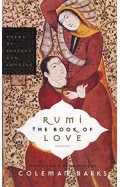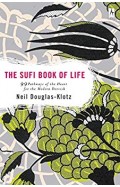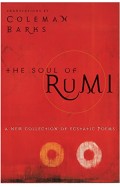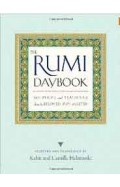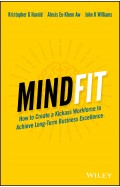The Inner Journey Views From the Islamic Tradition
By: William Chittick
-
Rs 760.00
- Rs 950.00
- 20%
You save Rs 190.00.
Due to constant currency fluctuation, prices are subject to change with or without notice.
THE INNER JOURNEY Views from the Islamic Tradition
THE INNER JOURNEY Views from the Islamic Tradition William C. Chittick Parabola has been practically unique among Western periodicals in recognizing that the inner aspirations of Muslims teach us far more about the nature of the Islamic tradition than the residual prejudices of the Christian heritage or the outward vagaries of political events and international relations. The central role of prophecy, a salient dimension of Islamic teachings, is the focus of the first chapter and elucidates the fact that the Qur’an and traditional Islam have always talked about the prophets in the plural and considered their role as an essential part of the cosmic drama, prophecy being coterminous with the human condition. Second chapter looks at the manner in which the spiritual life has been embodied in traditional Muslim life and society. Chapter three focuses on the importance that Islam has accorded to beauty in all domains of life, from architecture and calligraphy to gardens and personal comportment. Chapters four and five deal respectively with the cosmos and the soul, illustrating how discussion of each has never been cut off from consideration of the other. Those who want to accomplish the journey to God need to understand how the external realm reflects the internal realm. Chapter six provides a variety of answers reflecting the views of some of the diverse teachers. Seventh chapter turns to one of the better known sides of the Sufi tradition, that of the intoxicating joy that characterizes a number of its best known representatives, especially Rami.
| Book | |
| What's in the Box? | 1 x The Inner Journey Views From the Islamic Tradition |
THE INNER JOURNEY Views from the Islamic Tradition
THE INNER JOURNEY Views from the Islamic Tradition William C. Chittick Parabola has been practically unique among Western periodicals in recognizing that the inner aspirations of Muslims teach us far more about the nature of the Islamic tradition than the residual prejudices of the Christian heritage or the outward vagaries of political events and international relations. The central role of prophecy, a salient dimension of Islamic teachings, is the focus of the first chapter and elucidates the fact that the Qur’an and traditional Islam have always talked about the prophets in the plural and considered their role as an essential part of the cosmic drama, prophecy being coterminous with the human condition. Second chapter looks at the manner in which the spiritual life has been embodied in traditional Muslim life and society. Chapter three focuses on the importance that Islam has accorded to beauty in all domains of life, from architecture and calligraphy to gardens and personal comportment. Chapters four and five deal respectively with the cosmos and the soul, illustrating how discussion of each has never been cut off from consideration of the other. Those who want to accomplish the journey to God need to understand how the external realm reflects the internal realm. Chapter six provides a variety of answers reflecting the views of some of the diverse teachers. Seventh chapter turns to one of the better known sides of the Sufi tradition, that of the intoxicating joy that characterizes a number of its best known representatives, especially Rami.
The Inner Journey Views From the Islamic Tradition
By: William Chittick
Rs 760.00 Rs 950.00 Ex Tax :Rs 760.00
Zubin Mehta: A Musical Journey (An Authorized Biography)
By: VOID - Bakhtiar K. Dadabhoy
Rs 892.50 Rs 1,050.00 Ex Tax :Rs 892.50
Rumi :The Big Red Book The Great Masterpiece Celebrating Mystical Love And Friendship -
By: Coleman Barks
Rs 2,156.00 Rs 2,695.00 Ex Tax :Rs 2,156.00
Rumi The Book Of Love Poems Of Ecstasy And Longing
By: Coleman Barks
Rs 3,055.50 Rs 3,395.00 Ex Tax :Rs 3,055.50
The Sufi Book of Life: 99 Pathways of the Heart for the Modern Dervish
By: Neil Douglas-Klotz
Rs 3,036.00 Rs 3,795.00 Ex Tax :Rs 3,036.00
A Return to the Spirit Questions and Answers -
By: Martin Lings
Rs 592.00 Rs 740.00 Ex Tax :Rs 592.00
Rumi`s Four Essential Practices Ecstatic Body Awakened Soul -
By: Will Johnson
Rs 3,225.75 Rs 3,795.00 Ex Tax :Rs 3,225.75
The New Mother - A Twisty, Addictive Domestic Thriller that Will Keep You Guessing to the End
By: Nora Murphy
Rs 2,245.50 Rs 2,495.00 Ex Tax :Rs 2,245.50
Who Says You Can't? You Do - The Life-changing Self Help Book That's Empowering People Around the World to Live an Extraordinary Life
By: Daniel Chidiac
Rs 2,335.50 Rs 2,595.00 Ex Tax :Rs 2,335.50
MindFit: How to create a kickass workforce to achieve long-term business excellence
By: Kristopher G. Harold
Rs 1,695.75 Rs 1,995.00 Ex Tax :Rs 1,695.75
Zubin Mehta: A Musical Journey (An Authorized Biography)
By: VOID - Bakhtiar K. Dadabhoy
Rs 892.50 Rs 1,050.00 Ex Tax :Rs 892.50
The Inner Journey Views From the Islamic Tradition
By: William Chittick
Rs 760.00 Rs 950.00 Ex Tax :Rs 760.00














-120x187.jpg?q6)







